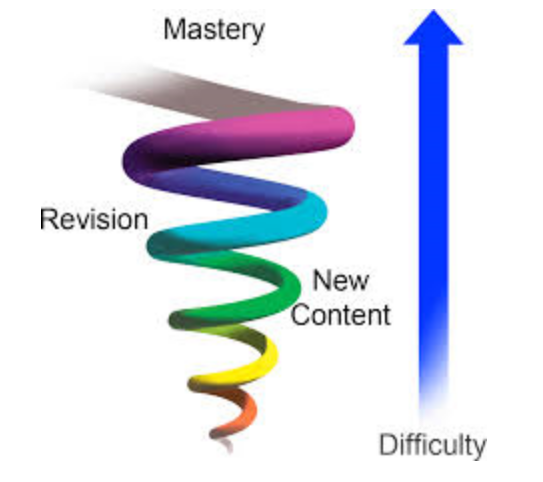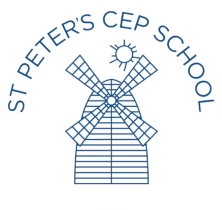The Spiral Curriculum

What is a Spiral Curriculum?
A Spiral curriculum, is where learning is designed to reflect a spiral of expanding knowledge and skills. In this approach, children revisit key knowledge, understanding and skills in different contexts throughout their current year group and across the whole school curriculum with increasing difficulty and challenge. This approach to teaching and knowledge retention was developed by Jerome Bruner and is based on the idea that fundamental ideas are repeatedly presented throughout the curriculum, but with deepening levels of difficulty.
This 'spiralling approach' allows pupils the opportunity to develop a 'mastery' of knowledge and skills because they are challenged on what they already know as well as being introduced to new content.
Why is the Spiral Curriculum recommended?
Spiralling curriculum design is grounded in cognitive science and what we know about how children learn. This approach improves long-term learning because children are challenged to return to previously taught concepts and apply them in new contexts which develops a 'schema' of knowledge allowing children to make links between concepts, subjects and learning.
What is the difference between Spiralling and Repeating?
It is important to remember that a spiralling approach to education is different from repeating the same content and skills over and over. Spiralling means being introduced to basic knowledge and then gradually building on the knowledge and learning more complex ideas.
The spiral curriculum is a curriculum in which the same knowledge and skills are taught over time, but with increasing complexity. The main advantage of using a spiral-based and enquiry based learning curriculum is that it continues to expose the pupils to a wide variety of disciplines, topics/concepts until they master it by reviewing it repeatedly. When learners re- engage with a concept over and over again, they recall prior knowledge in their memory and build on to it. The spiral approach to teaching focuses on the open-ended nature of understanding recognising that learning never ends and is a lifelong process.
